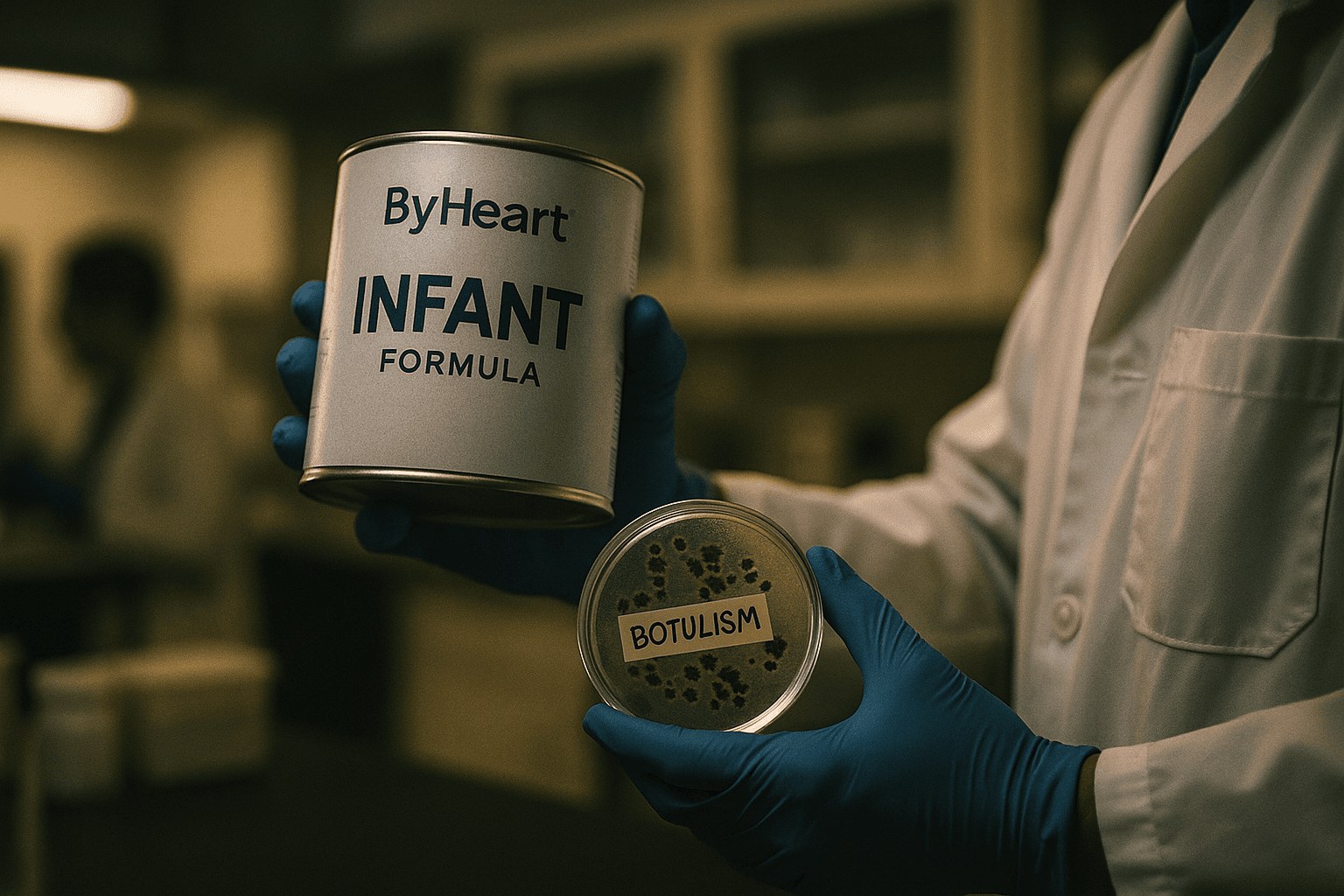Tests find botulism bacteria in ByHeart samples, company warns wider risk
Laboratory testing tied to a multistate outbreak of infant botulism found the species that can produce botulinum toxin in multiple ByHeart formula samples, raising fears about contamination across product lots. The discovery deepens public health concerns for families and spotlights gaps in regulation, supply chain safety, and support for communities most reliant on formula.

Laboratory analysis connected to an outbreak of infant botulism detected the species of bacteria that can produce botulinum toxin in multiple samples of ByHeart infant formula, public health officials and the company disclosed. ByHeart said tests of 36 samples drawn from three different production lots identified the organism in five samples, and the company warned it "cannot rule out the risk that all ByHeart formula across all product lots may have been contaminated."
At least 31 babies in 15 states who consumed ByHeart formula have become ill in an outbreak that began in August, federal and state health authorities said. Investigations and product recalls are underway as officials work to determine the scope of contamination, the route by which the bacteria entered the product, and whether additional manufacturing or distribution controls failed.
Infant botulism is rare but can be severe. The illness is caused when spores of Clostridium botulinum germinate and produce toxin in the vulnerable infant gut, leading to muscle weakness and respiratory compromise. Physicians treating infant botulism typically provide supportive care and may administer botulism immune globulin, a specific therapy that can shorten recovery when given promptly. Hospitalization is often required, and recovery can be prolonged.
The discovery of the bacterium in unopened formula samples raises urgent public health and policy questions about food safety oversight, testing protocols, and the regulatory framework that governs infant formula production. The U.S. Food and Drug Administration regulates formula safety, but critics and lawmakers have long argued that regulatory resources and inspection frequency are insufficient to ensure consistent manufacturing standards across a complex national supply chain.
For families the consequences are immediate and wrenching. Parents who trusted a commercial product for nutrition now face hospitalization and uncertainty. For low income families, for those in rural or underserved areas, and for caregivers juggling work and medical appointments, the outbreak amplifies existing inequities. Access to alternative formula, the ability to safely prepare substitutes, and the logistical and financial burden of extended hospital stays fall unevenly across communities.

Public health authorities must balance rapid testing and recall actions with clear communication to caregivers and clinicians. Swift identification of exposed infants, guidance on symptoms and care, and prioritized distribution of any needed medical countermeasures are critical steps. Health systems in affected states are already coordinating case finding and treatment, while agencies work to trace production and distribution channels.
Beyond the immediate response, the outbreak is likely to intensify calls for reform. Advocates say the government should strengthen routine inspections, require more transparent contamination testing, and ensure emergency reserves and distribution plans that prioritize vulnerable families. Lawmakers and regulators will face pressure to examine whether industry practices and oversight allowed a rare but preventable pathogen to enter a product intended for the nation’s most vulnerable consumers.
As investigations proceed, clinicians and public health officials urge vigilance for signs of infant botulism and equitable support for affected families who must navigate both the clinical crisis and the wider fallout from a shaken trust in infant nutrition supplies.


